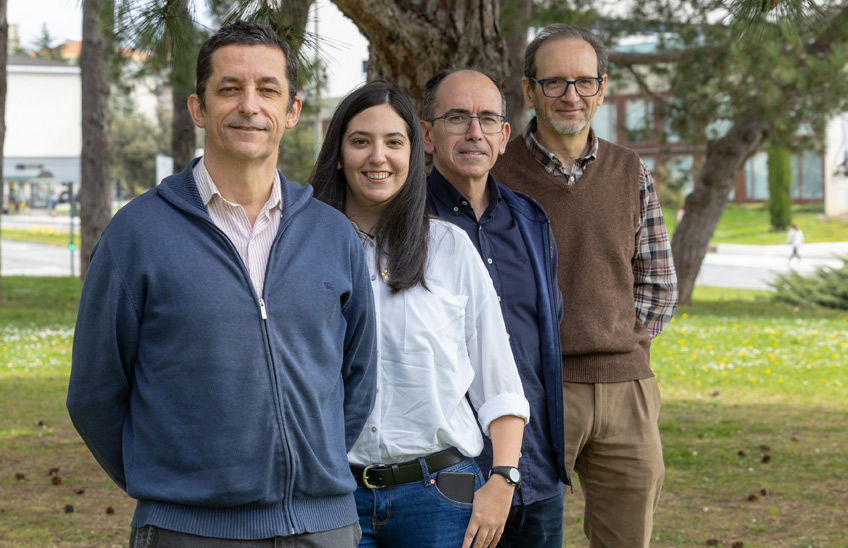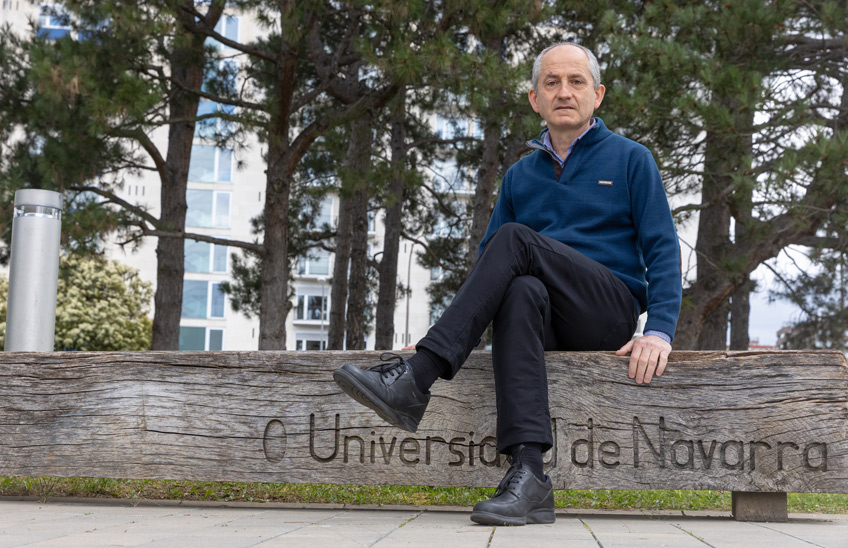BIOMA Institute researchers observe, twenty years later, the impact of a single sludge fertilization on a Mediterranean grassland.
A study shows that the use of sludge modifies grassland dynamics and its sensitivity to long-term climatic conditions.

27 | 11 | 2025
A single application of sewage sludge can profoundly alter a Mediterranean grassland for at least twenty years, modifying its species composition, its functioning and its response to climatic events such as drought or extreme temperatures. This has been observed by Ricardo Ibáñez and Mercedes Valerio, researchers at the Biodiversity and Environment Institute BIOMA of the University of Navarra, in a new study together with a team of ecologists from the Czech Republic.
This research has been published in the journal Perspectives in Plant Ecology, Evolution and Systematics in the article Twenty-year effect of sewage-sludge fertilization in a Mediterranean grassland: Impact on species composition, functional groups and interrelation with climate. For twenty years, from 2004 to 2023, BIOMA Institute researchers have continuously followed the evolution of a calcareous grassland in Navarra, following the application in 2003 of a dose of sewage sludge from a wastewater treatment plant. This internship, common in several European countries, is proposed as a sustainable alternative to improve soil fertility and reduce erosion, but there were hardly any programs of study analyzing its long-term effects on vegetation.
The results show thatfertilization favors fast-growing annual species, characterized by larger and lighter leaves (a trait linked to opportunistic strategies), while it disfavors perennial species and woody plants, typical of more mature and stable communities. Although the effect was very pronounced during the first half of the experiment, the differences between fertilized and unfertilized plots started to decrease recently, suggesting a forthcoming disappearance of the fertilization effect after more than two decades.
In addition, the study reveals that fertilization modifies how plants respond to climate, a core topic in Mediterranean regions where water availability determines vegetation structure. Annual plants show a certain capacity to take advantage of the gaps left by those most affected by summer droughts, but this advantage disappears when fertilization is applied. Warmer autumns favor some herbaceous perennials, but this effect is also lost in fertilized plots.
Another important finding is that fertilization alters the natural trajectory of ecological succession. Without fertilization, grazing withdrawal leads to a progressive increase of woody species, which can lead to scrub formations. Fertilization slows down this process, favoring a state dominated by fast-growing annual and perennial herbaceous species.
"These results underline the importance of long-term programs of study to evaluate livestock and land management practices. If we only analyze the first few years after a given action, as is usual in most programs of study, we do not see the real magnitude of the impact, and we take for granted trajectories in the vegetation that are not real," explains Ricardo Ibáñez. "Vegetation responds slowly, and the effects of a single intervention can be maintained for decades, as has been demonstrated in this study," adds Mercedes Valerio.
The work provides essential information for designing sustainable management strategies in Mediterranean ecosystems, especially in a context of climate change and increasing pressure on soils. It also raises questions about the use of sewage sludge in semi-natural areas, where its impact could be greater than expected.
- Mercedes Valerio, Ricardo Ibáñez, Jan Lepš, Lars Götzenberger (2025). Twenty-year effect of sewage-sludge fertilization in a Mediterranean grassland: Impact on species composition, functional groups and interrelation with climate. Perspectives in Plant Ecology, Evolution and Systematics, 69,125906, ISSN 1433-8319, https://doi.org/10.1016/j.ppees.2025.125906.



